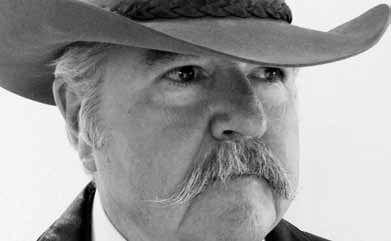By Senator Catherine Cortez Masto
The U.S. Constitution requires a census each decade to count every person living in the United States, yet often times geographically isolated communities have often been overlooked and undercounted. Nevada is among the states at greatest risk of an undercount in the 2020 Census, according to a recent study conducted by the Urban Institute.
Several factors explain why Nevada’s rural communities are at risk of falling through the cracks in the upcoming census, one of which is geography. Census workers have a harder time counting rural homes because they’re more likely to be spread apart, to be hidden from main roads and to come in the form of non-traditional residences like sheds and campers. The Census Bureau plans to hire fewer census workers, which means there will be even fewer census takers to cover rural households. Additionally, although Nevadans will still have the option to respond by regular mail or telephone, an increasing reliance on internet responses for the census will be an obstacle for the 53 percent of Nevada’s rural communities that lack reliable broadband.
There’s a lot at stake if rural Nevadans aren’t counted. Census data determines how many representatives each state gets in the U.S. House of Representatives, as well as how boundaries of voting districts are drawn. If rural communities are undercounted, their voices are less likely to be heard and represented in federal, state and local governments. Businesses also use census data to determine where to expand operations, which means rural communities are less likely to see investments to stimulate their economies if an undercount occurs. I know firsthand the importance of Nevada’s rural economies, and we can’t let them be overlooked or constrain their opportunities due to a lack of accurate census information.
Just as importantly, federal dollars for over 100 programs are distributed to states and localities every year based on data derived from the census. In 2015 alone, the federal government used 2010 census data to direct $6 billion dollars to Nevada, including $2.6 billion to fund Nevada’s Medicaid expansion. Rural Nevadans, in particular, rely on millions of dollars in federal funding each year to improve highways and public transportation options, fund rural rental assistance programs and improve the state’s water delivery and wastewater infrastructure. That’s your tax dollars going toward crucial infrastructure and economic investments that create jobs in construction and enable commerce through our communities. Studies suggest that every uncounted person could cost state, local and tribal governments up to $3,000 in lost funds.
That’s why Nevada’s leaders are working hard to ensure that each and every Nevadan is counted in the census. Just last month, Nevada’s Complete Count Committee held its first meeting to brainstorm ways to collaborate with all local communities and stakeholders to ensure every Nevadan fills out the 2020 Census. Governor Steve Sisolak is leading the charge and has set aside $5 million dollars to fund the committee.
I encourage every Nevadan to be counted. And I hope you’ll encourage your friends, neighbors and family to participate in the census. An accurate count will help us bring much needed investment and representation to all of our communities. Alongside state and local leaders in the Silver State, I’m going to do everything in my power to ensure every Nevadan is counted and heard.




Democrat FDR used census date to round up Japanese – I never completed census in 50 years, nor will I. Silly system in the modern age, waste of money. Besides I thought “undocumented people” were no problem? So there are people here we know nothing about? I thought that was OK?